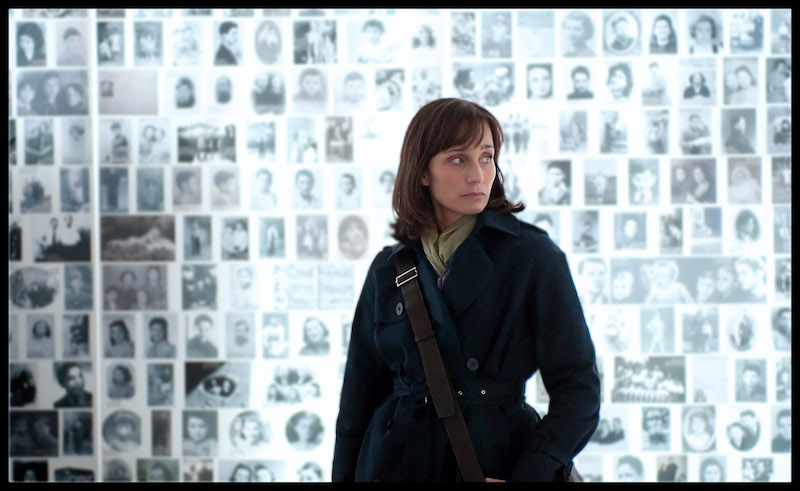
Kristin Scott Thomas
photo (c) julien bonet
Her name is synonymous with classy dramas — in English and French — but it would be wrong to classify Sarah’s Key as another Kristin Scott Thomas vehicle. She does deliver a typically cool and intelligent performance here as a bilingual journalist delving into a Second World War atrocity. But it’s 11-year-old Mélusine Mayance who makes the strongest impression as Sarah Starzynski, a Jewish girl whose courage and ingenuity are tested to the limit.
Adapted from a novel by Tatiana de Rosnay, Gilles Paquet-Brenner’s film cuts between Nazi-occupied Paris and the autumnal-looking city 70 years later. In the present, American writer Julia Jarmond (Scott Thomas) lives in the French capital with her husband Bertrand (Frédéric Pierrot) and teenage daughter. Julia is working on a story about the Vel’ d’Hiv Round-up of July 1942, in which 13,000 Jewish men, women and children were confined in degrading and inhumane conditions inside the city’s Vélodrome d’Hiver. For most, this was the first stage in a journey that would end in death at Auschwitz.
Sarah’s Key examines those horrifying events through the experience of the Starzynski family and shows the repercussions seven decades later. The first third of the film is a vividly told wartime drama that captures the panic, fear and resignation of the internees inside the covered stadium, and then at the Beaune-la-Rolande internment camp. But Sarah is further tormented by her decision to lock her young brother Michel in a cupboard in the family’s apartment on the day of the arrests. Her intended act of mercy may have condemned him to an even worse fate.
If you’re going to watch Sarah’s Key on DVD, you won’t want to know too much more about the results of Julia’s investigation. But there proves to be a connection between the Starzynskis and Bertrand’s family, which turns professional curiosity into a personal quest. For me, though, the attempt to link past and present through this character isn’t entirely successful. That’s not a reflection on Scott Thomas’s nuanced performance — I just didn't find the subplot involving Julia’s mid-life marital problems that interesting. The expository scenes in which Julia chides her younger colleagues for their ignorance of French involvement in Vel’ d’Hiv, also seem rather clumsy.
The most affecting scenes in Sarah’s Key are those featuring the extraordinary Mayance. Blonde, hollow-eyed and driven by an unquenchable survival instinct, her Sarah is what distinguishes this film from many other worthy but unmemorable Second World War dramas. You might want to pause and savour the opening scenes, in which Sarah and Michel giggle as they play in their bedroom. It’s the only time in this harrowing story when Mayance is simply required to act her age.
Sarah’s Key also features excellent supporting performances, notably from Niels Arustrup (A Prophet) and Dominique Frot as a couple who risk their lives to help Sarah. Michel Duchaussoy’s key role as Julia’s father-in-law felt a little underwritten to me — partly because she spends much of the film dodging his phone calls.
An hour-long documentary on the DVD includes interviews with just about everyone involved with this production including — bizarrely — the caterers. You won’t hear much from Kristin Scott Thomas, but there is a chance to see the precocious Mayance workshopping a scene with help from her dad. It also shows the lengths to which Paquet-Brenner and his team went to re-create the stifling atmosphere inside the Vel’ d’Hiv.










